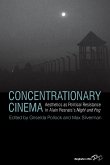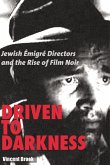Now available in paperback, this book is a uniquely comparative analysis of the role of cinema in the development of collective memories of the Shoah in France and Italy. The work follows a chronological structure of which three French documentaries - Night and Fog, The Sorrow, and The Pity and Shoah - form the backbone. These three sections are linked by comparative case studies on famous and lesser-known fictional works, such as Roberto Benigni's Life is Beautiful, Louis Malle's Lacombe Lucien, Armand Gatti's The Enclosure, and Radu Mihaileanu's Train of Life. The book tackles crucial themes, such as the politics of history and its representation, the 1970s obsession with collaboration, and the ethical debate around cinema's ability to adequately represent the Shoah. The book fulfills three complementary purposes: to offer a detailed historical and textual analysis of key cinematic works on the Shoah; to firmly situate the popular and institutional reception of these works within the political and socio-cultural context of the time, so as to link cinema to society's attitudes towards the Shoah; and to show how these attitudes have changed over time, in order to evince the role cinema has played in the transmission of history and memory. Film and the Shoah in France and Italy shows that cinema has both reflected and affected the dominant perceptions of history, contributing to the transition from recognition to representation of the Shoah. The book also shows how this transition has been slow and uneven, and it questions whether recognition and commemoration necessarily imply a deeper historical understanding. [Subject: European History, Cultural Studies, Jewish Studies, Holocaust Studies, French Studies, Italian Studies, Film Studies]
Hinweis: Dieser Artikel kann nur an eine deutsche Lieferadresse ausgeliefert werden.
Hinweis: Dieser Artikel kann nur an eine deutsche Lieferadresse ausgeliefert werden.








